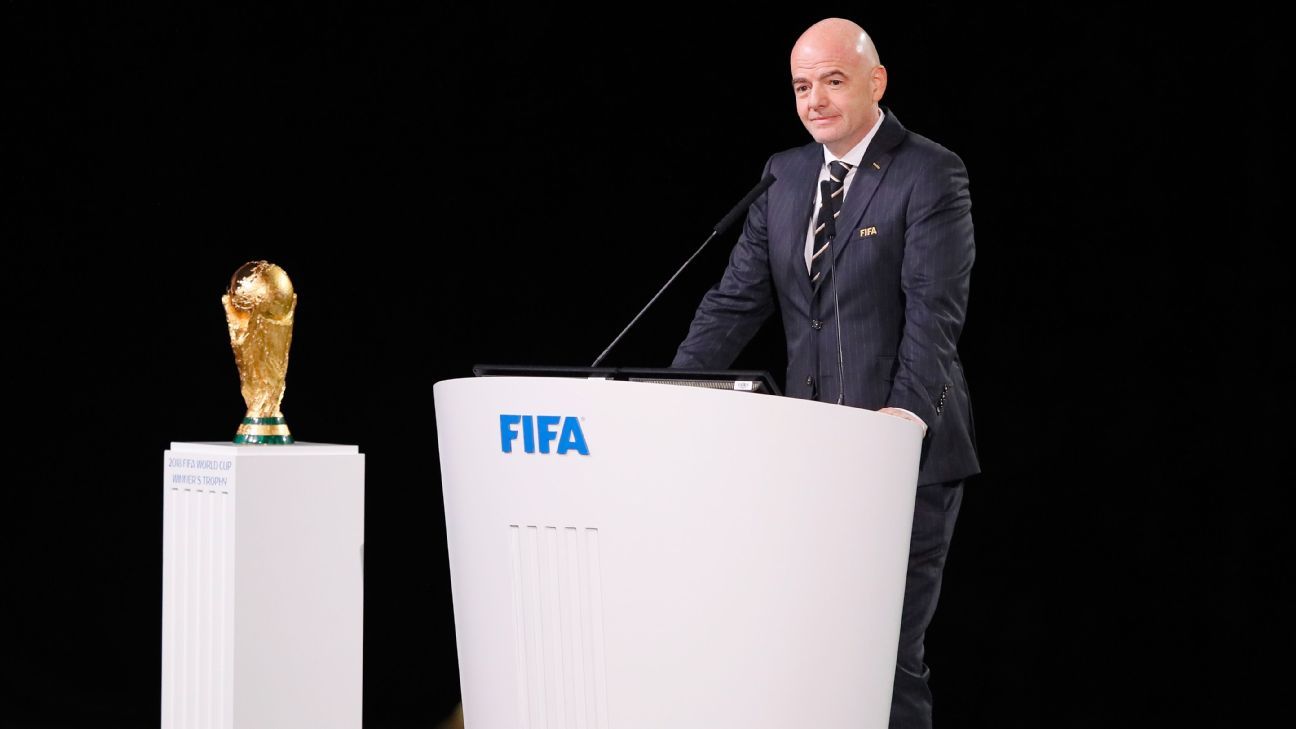
NEW! Find where to watch all of your favorite sports!
Saudi Arabia is set to stage a winter World Cup in 2034 after a FIFA evaluation report for the sole bidder for the tournament highlighted the likelihood of the competition being played “between October-April” due to “local climatic conditions” and cited it as an “elevated risk.”
FIFA will announce the hosts for the 2030 and 2034 World Cups on Dec. 11, with a combined bid from Spain, Portugal, Morocco, Argentina, Uruguay and Paraguay set to be announced as the 2030 host to mark the centenary of the first World Cup in Uruguay in 1930.
And Saudi Arabia will become the second Middle East nation to stage the tournament following neighbouring Qatar, which hosted the 2022 World Cup.
Despite concerns over human rights in the country, FIFA’s evaluation reporting scored that issue as a medium risk in its assessment, which resulted in Saudi Arabia scoring 419.8 points out of 500 — the highest evaluation score of any previous World Cup bidder.
FIFA’s report said improvements in human rights in the country will “take significant effort and time,” but added hosting the World Cup “could help contribute to positive human rights impacts.”
The FIFA report also says that Saudi Arabia offers a “medium” risk in terms of stadia due to the country’s plans to construct several new stadiums between now and 2034, including a so-called “stadium in the sky” in the yet-to-be-built city of Neom, which is planned to be built 350 metres above the ground.
The timing of the tournament in Saudi Arabia is likely to prove controversial, however, following the disruption to major leagues across the world during the Qatar finals, which was staged across November and December 2022 due to concerns over the heat in the country during the summer months.
Seasons were extended and major leagues closed down for a month accommodate the 2022, but FIFA played down concerns over timing in its evaluation report that 2034 due to its International Match Calendar yet to be defined for that period.
The report said that “should the [Saudi] bid be successful, any decision regarding the timing of the competition would take these matters into consideration when seeking to provide optimal conditions for teams and spectators.”
It is also noted that it is “important to consider religious events in determining the timeline for the competition. Ramadan, the annual Muslim period of fasting and prayer, and the yearly Hajj pilgrimage, when more than 1.5 million pilgrims travel to Saudi Arabia from around the world, would have to be taken into account.”
As a consequence of the uncertainty over the staging dates of the 2034 World Cup, the FIFA report said that it presented an “elevated risk” in terms of event timing.

